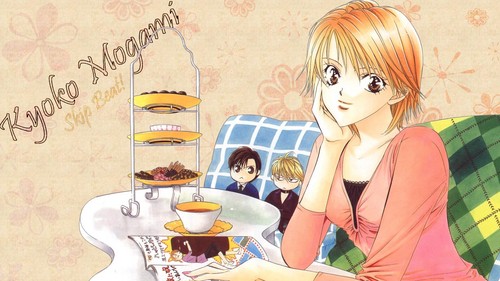
Guest Author: ThatNerdyBoliviane
How do I write about a character who was so personal and meaningful to me when I was a dissociative teenager? Growing up as a Latinx of color, issues like representation were not completely at the forefront of my mind, but I did know that I was not connecting to characters that were presented to me no matter what medium I consumed. I remember the day when I went to Kinokuniya in New York City after school to pick up my monthly Shojo Beat magazine and there it was–chapter one of Skip Beat. At that age, it was so rare for me to find a character that I identified with on a personal and emotional level so it didn’t take me long to decide to purchase volume 1.
[Warning: Minor Spoilers!]
A quick google search of what the series is about, the website myanimelist.net will tell you the following:
“Bright, diligent, and yet naïve 16-year-old Kyouko Mogami works hard to support the career and dreams of her childhood friend, crush, and rising pop icon, Shoutarou Fuwa. Toiling endlessly at burger joints and tea ceremonies, the innocent Kyouko remains unaware that day in day out, all her tireless efforts have been taken for granted, until, one day, she finds out that her beloved Shou sees her as nothing but a free servant. Shocked, heartbroken and enraged, she vows to take revenge on the rookie star by entering the ruthless world of entertainment herself. As she steps into this new life, Kyouko will face new challenges as well as people who will push her out of her comfort zone.”
While it is true that “revenge” is one of the driving forces that leads Kyōko to enter into the entertainment industry and began a journey of self-discovery, it is the betrayal itself that opens up a floodgate of issues and how much her emotionally abusive relationship with her mother negatively impacted any relationship Kyōko developed as she grew into adulthood. At the time what amazed me about the series was its willingness to tackle the issue of family abuse and the coping mechanisms survivors use in order to survive any given situation. Throughout the first couple of manga volumes, we learn that because of her mother’s constant rejection of her existence, Kyōko always worked hard to please other people so that she would not become a burden for them. The clearest example of this was when she was a little girl Kyōko had to live with Shoutaro Fuwa’s family. At such a young age she began to help out at the inn so that his family would be proud of her. The heartbreaking aspect about her childhood was that Kyōko always believed if she worked hard and created a “perfect” image of herself than all her hard work would make people love her existence.
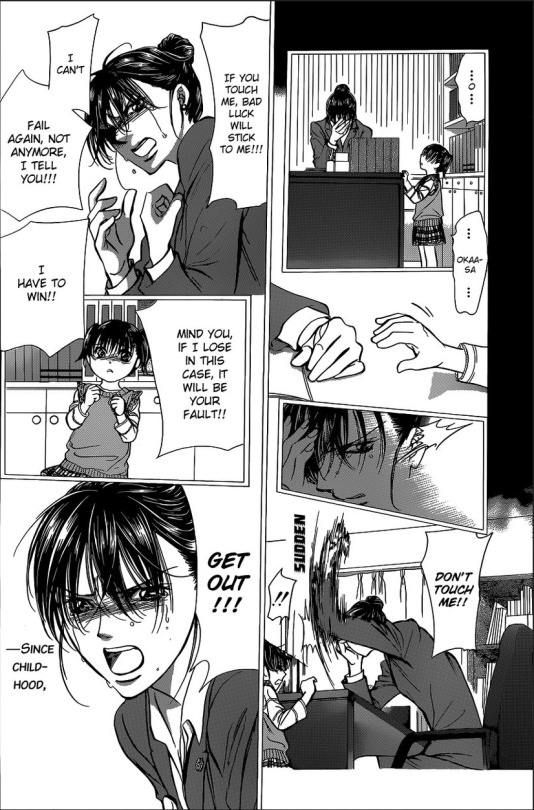 © Skip Beat!
© Skip Beat!
In order to escape the real moments of her reality, she used her intense love of fairytales and placed herself as one of the many princesses in those stories who have also experienced hardship, but despite all that pain they went through, they got their princes and lived happily ever after. Sadly in the case of “prince” Shoutaro Fuwa, he used her emotions to his advantage and threw her away when she became inconvenient for him. At this point in the story, Kyōko had been repressing her feelings throughout her entire life so when Shoutaro betrayed her it was the straw that broke the camel’s back. Everything Kyōko has ever done was for “love” in the hope those feelings would be returned by anyone she interacted with. When he took away her feelings of “love” that kept her strong her in her darkest moments, she broke down. It was hard for her to accept that she never did anything for herself that she can be proud of and she was a product of what everyone wanted her to be. It was easy to see why she did not like herself very much when she came to this realization.
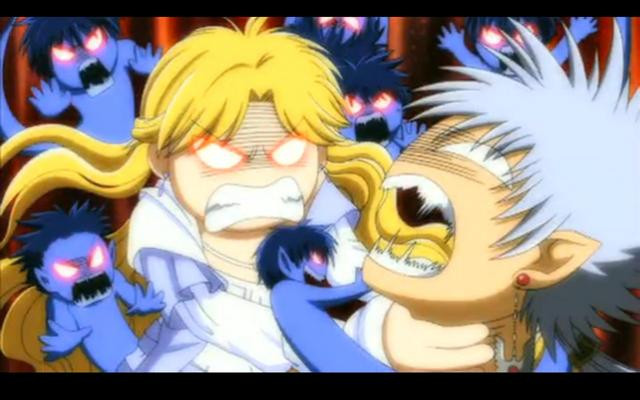
Kyoto dreams of being an empowered princess. © Skip Beat!
While it is wonderful seeing Kyōko face all the bullshit in her life with determination and prove everyone wrong regarding who she is as a person, it was also equally meaningful seeing her vulnerable moments. To me, it meant a lot to see Kyōko allow herself to completely breakdown because it was a way of telling the audience that it is ok to let yourself cry and deal with your emotions in a healthy way. In the case of our heroine, in the first volume, she cried for all the things she could not cry about openly in the past and due to that it becomes easier for her to cope with her feelings whenever she is troubled. While it might be hard for those of us who viewed such expression of emotions as “weak” in our younger days, it is actually the right step in the journey to heal ourselves from past traumas. Learning how to love yourself is one of the most difficult things anyone can do and it is often the hardest relationship to work on.
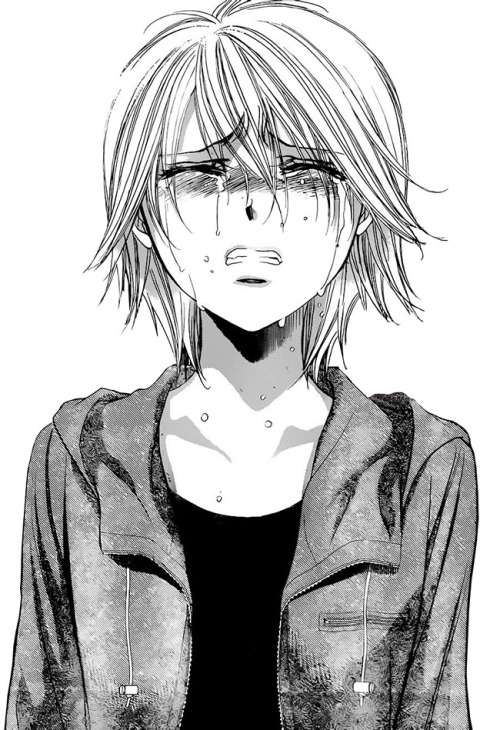 © Skip Beat!
© Skip Beat!
Despite the great progress Kyōko has made in the series in terms of her mental health, I love that the series constantly reminds us that she will never completely heal from the wounds of her past. She is learning how to cope with all her problems better and seeking out relationships with folks who will treat her with respect and love her messy self. Even in the current timeline in the manga, Kyōko is still learning how to love herself and facing the root of her past traumas head on–it is a life long journey. It is a beautiful testament that we can survive our former abusive environments and thrive in this world being our full authentic selves.
I am so happy to see how popular and successful the manga has become over the years since I was a teenager and gives me a lot of hope that more folks are interested and relate to Kyōko’s story.
While I may not be as emotionally invested in Skip Beat anymore, Kyōko Mogami was an emotional and spiritual guide for me during my teenage years. Kyōko is one of many great characters that are coming out of the Japanese magazine Hana to Yume and I look forward to following her until the end of the series.
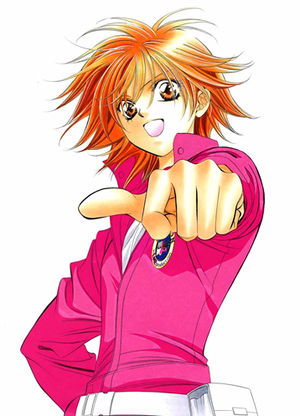
About the Author: ThatNerdyBoliviane formerly known as ThatLatinxChick was originally born in New York City and essentially lived there until the age of 17 when she had to move to Toronto for reasons. She is currently 26 struggling to survive in this weird ass world that does not celebrate awesomeness enough. She is a self identified Queer Quechua (Mestize) Bolivian-American who is involved with social justice work of all kinds. Aside from that she is an an avid lover of anime, manga, cartoons, (on rare occasion live-action TV shows if it’s good), and having amazing discussions with other folks about nerdy things. You can follow her on twitter @LizzieVisitante.
Images via setsu82, more-sky.com, Skip Beat! Wikia
Thanks for linking/sharing this here!
That’s pretty beautiful, and certainly has inspired me to give the series a shot.
I also appreciate that Hana Yume has so many wonderful, female protagonists. Yona is currently my favorite one and the series really strikes a chord with so many things I love, but Nanami was also a great lead (Kamisama Hajimemashite). It’s wonderful that girls the world over can have characters and stories like these~.
I am actually thinking about republishing my Akatsuki no Yona review because I adore that series, but might revamp a few things to make it a better piece so stay tune ^_^.